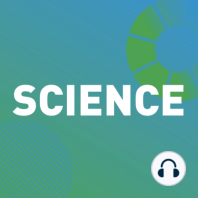59 min listen

188. Bryn Nelson with Sally James - Unlocking the Secrets — and the Science — of Poop
188. Bryn Nelson with Sally James - Unlocking the Secrets — and the Science — of Poop
ratings:
Length:
75 minutes
Released:
Oct 13, 2022
Format:
Podcast episode
Description
We all do it, but we hardly ever talk about it. After all, human feces isn’t exactly a popular topic of discussion. We’d simply like to flush it and forget about it. Researchers, however, want to change all that. That’s because our body’s natural byproduct may be the key to solving some of today’s biggest problems. Local, award-winning journalist and microbiologist Bryn Nelson, Ph.D., is determined to shift our mentality around poop. In his book, Flush, Nelson shares how human waste holds potent medicine, sustainable power, and even natural fertilizer to restore the world’s depleted lands. New science shows that within this lowly, underused resource lies effective ways of measuring and improving human health, identifying early warnings of community outbreaks like COVID-19, and reversing environmental harm. It turns out that poop is very much worthy of conversation; Nelson even argues that it could be the world’s most squandered natural resource. But unlocking poop’s enormous potential (poo-tential?) will require us to overcome our shame and disgust, embracing our roles as the producers and potential architects of a more circular economy. Could our lowly byproducts become our salvation? A dose of medicine, a glass of water, a gallon of rocket fuel, an acre of soil: sometimes hope arrives in surprising packages. Bonus! In a pop-up science fair of sorts, nine local organizations will join us in The Forum to share more about biosolids, wastewater treatment, and everything you ever wanted to know about what happens after you flush. Joining us will be Sally Brown with the University of Washington, King County’s LOOP program, NW Biosolids, the Water Environmental Federation, the Institute for Systems Biology, the Bullitt Center, Stoup Brewing, RAIN Incubator, and The Nature Conservancy/Ocean Sewage Alliance. Bryn Nelson, Ph.D., is an award-winning science writer and former microbiologist who decided he’d much rather write about microbes than experiment on them. After receiving his Ph.D. from the University of Washington, he shifted course and completed a graduate program in science writing at the University of California at Santa Cruz. Since then, he has accumulated more than two decades of journalism experience, including seven years at the Newsday science desk where he covered genetics, stem cell research, evolution, ecology, and conservation. Nelson has written for dozens of other outlets, from The New York Times, NBCNews.com, and The Daily Beast to Nature, Mosaic, and Science News for Students Sally James is a writer and journalist who covers science and medical research. She has written for The Seattle Times, South Seattle Emerald, Seattle and UW Magazines, among others. For the Emerald, she has been focusing during the pandemic on stories about health and access for communities of color. In the past, she has been a leader and volunteer for the nonprofit Northwest Science Writers Association. For many years, she was a reviewer for Health News Review, fact-checking national press reporting for accuracy and fairness. She is most pithy on Twitter @jamesian. Flush: The Remarkable Science of an Unlikely Treasure (Hardcover) Elliott Bay Books
Released:
Oct 13, 2022
Format:
Podcast episode
Titles in the series (100)
131. Christopher A. Bail: Defeating Political Tribalism with Social Media: In an era of increasing social isolation, platforms like Facebook and Twitter are among the most important tools we have to understand each other. But user behavior suggests that these platforms are also powering deep social divisions... by Town Hall Seattle Science Series